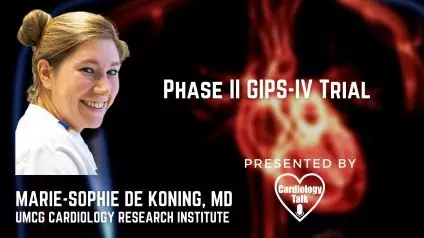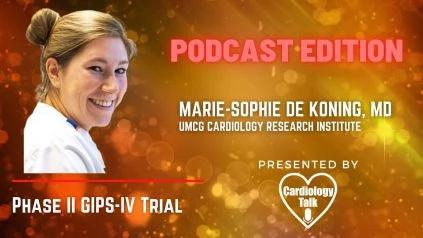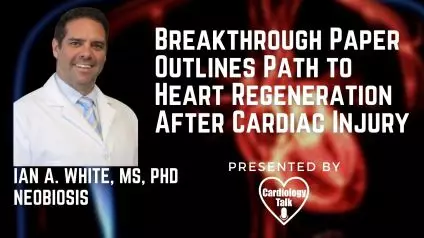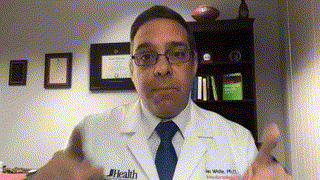Marie-Sophie de Koning, MD @MarieSophiedeK1 @CardiologyUmcg @ProfPim #AAC22 ##GIPS-IV Phase II GIPS-IV Trial
Marie-Sophie de Koning, MD, PhD Candidate in Cardiology at the UMCG Cardiology Research Institute. In this video, she speaks about AAC 2022 Abstract - Results from the GIPS-IV Trial.
Brief Synopsis:
The most effective treatment for ST-segment elevation myocardial infarction is now timely and successful reperfusion with primary percutaneous coronary intervention (PPCI) (STEMI). However, persistent myocardial injury caused by ischemia and subsequent reperfusion is seen in the vast majority of patients (88%) and poses a risk of heart failure development. In numerous experimental models, hydrogen sulfide (H2S) administration has been found to protect the heart from "ischemia reperfusion injury." Human data suggests that the H2S-releasing chemical sodium thiosulfate (STS) can be safely administered.
The goal of this study was to examine the efficacy and safety of STS versus placebo treatment on myocardial infarct size in STEMI patients treated with PCI.
A multicenter, double-blind, randomized controlled clinical trial was used for the study. A total of 380 patients aged 18 and up who were undergoing primary PCI for a first STEMI and deemed amenable by the investigator to be treated with STS 12.5g intravenously (i.v.) or matched placebo immediately after arrival at the catheterization laboratory (cath-lab) and a repeated dose administered 6 hours after the first dose, on top of standard treatment, were included in the study. The primary endpoint is the size of the infarct as determined by cardiac magnetic resonance imaging (CMR-imaging) four months following randomization.







